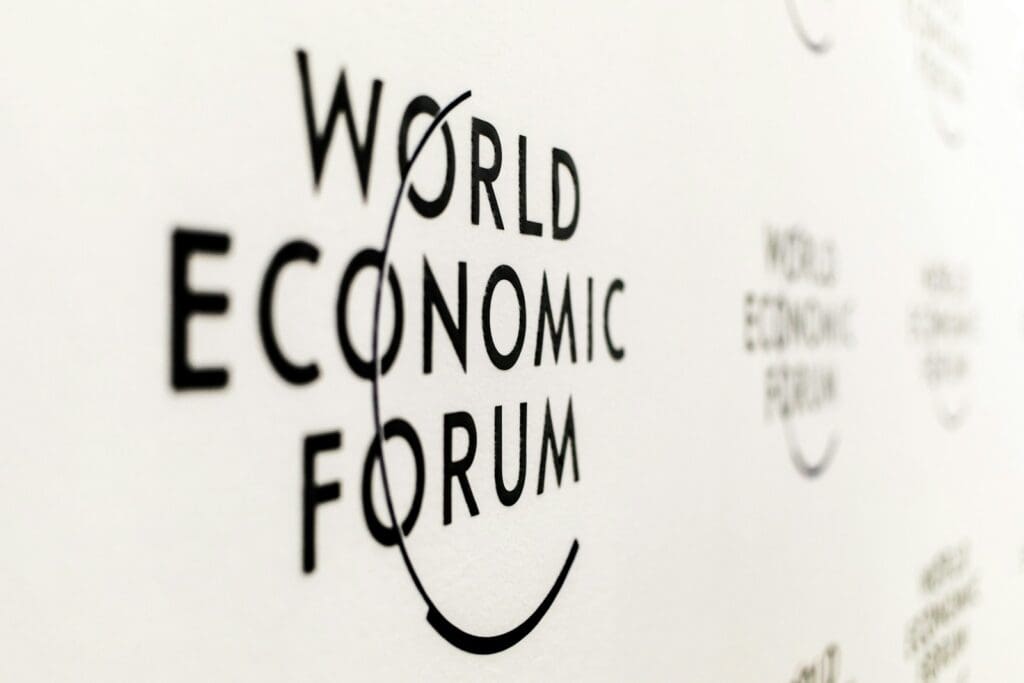Showing up for children in the global arena: Reflections on the 2025 World Economic Forum in Davos

This January, I had the opportunity to discuss the critical importance of children’s online safety as a participant of the 2025 World Economic Forum (WEF), amidst the glorious mountain scenery of Davos, Switzerland.
WeProtect Global Alliance has worked with the World Economic Forum’s Global Coalition on Digital Safety for some time, including as co-chair of a workstream developing key principles on digital safety.
The Forum provided a unique opportunity to meet and learn from leaders with expertise and insights from far beyond the realms of child protection and online safety that we are so closely associated with on a day-to-day basis.
I’d like to share some observations about the wider ecosystem in which we operate, and some take aways from the event to consider as we continue to strive for a world free from online child sexual exploitation and abuse:
1. Child sexual abuse is one of the few remaining bipartisan issues.
It was an honour to join a panel of global leaders from the European Commission, United Nations High Commissioner for Human Rights, Pinterest and Human Rights Watch, to discuss the topic of content moderation.
It struck me that although the global climate is characterised by polarised opinions, our panel achieved an unusually high level of consensus. All agreed that child sexual abuse content and activity is unacceptable and needs to be robustly addressed. It is critical that we leverage this global consensus to push for more action to tackle this most egregious of harms.
With the endorsement of the UN Convention on Cybercrime, we have a clear opportunity for greater international alignment, supporting cross-border operations and reducing safe havens for offenders. We now need to ensure we turn it into action.
2. There is strong appetite for reducing regulation, not strengthening it.
In a world where growth is the top priority for many governments, Davos speakers including EU Commission President, Ursula von der Leyden, emphasised their support for innovation and desire to reduce unnecessary regulation and red tape for industry. I heard AI company chiefs sharing feelings of constraint by regulations currently in place – “we aren’t moving fast enough”
However, the issue of safety, and child safety in particular, was rarely mentioned in this context.
While legislation has never been a silver bullet, it is more important than ever to underline the core humanitarian benefits of child protection legislation, ensuring the digital world is designed with children and safety in mind. As in the automotive sector, there is no reason why effective regulation and increased safety cannot go hand in hand. Innovation yes, but not at any cost. We need to ensure critical child safety laws are not deemed to be “red tape” and make a powerful, data driven case for change.
3. We need to be more interdisciplinary
One of the great strengths of the WEF is the opportunity to move seamlessly between Nile Rodgers and Angélique Kidjo holding forth on the impact of AI on the music business, to the President of Argentina setting out his perspectives on geopolitics.
Not every session I attended was directly related to ending child sexual abuse and exploitation, but I found them all very valuable. At times, the urgency of our mission as members of the Alliance demands a laser like focus, but in Switzerland I witnessed the power of exchanging ideas with innovators and thinkers in all kinds of subject aeras. Hearing different perspectives on engagement or distinct views on ways of conducting business reminds us that our work can only be enhanced by deliberately stepping out of the boxes we put ourselves into.
4. Diversity and inclusion in organisations is essential, not optional
This is a personal one for me, as a neurodiverse leader, diagnosed with autism back in 2022. I was pleased to be invited to speak on neurodiversity and leadership at WEF, sharing my perspectives and learnings with a packed hall. It was the first time that the topic has ever been discussed at the Forum and I was blown away by the positive response.
I hope through our work at WeProtect, we can demonstrate how being inclusive strengthens our work and mission. While diversity in leadership is hugely important, inclusive practices must permeate every area of our work, including in research, policy and advocacy, if we are to effectively enable all children to enjoy all the benefits of the digital world.
The value of inclusiveness covers not only neurodiversity, but the inclusion of all vulnerable and marginalised voices, including those of children and survivors.
I am particularly looking forward to our upcoming webinar series exploring how we best protect marginalised children in online spaces, including children with disabilities, those from LGBTQIA+ communities and children who are displaced or on the move.
I’d like to thank the World Economic Forum team for the opportunity to participate in this prestigious event. I returned from Switzerland energised and keener than ever to ensure that we unashamedly and vocally promote the rights of children in the digital world, ensuring we harness innovation, technology and regulation to end child sexual abuse and exploitation.